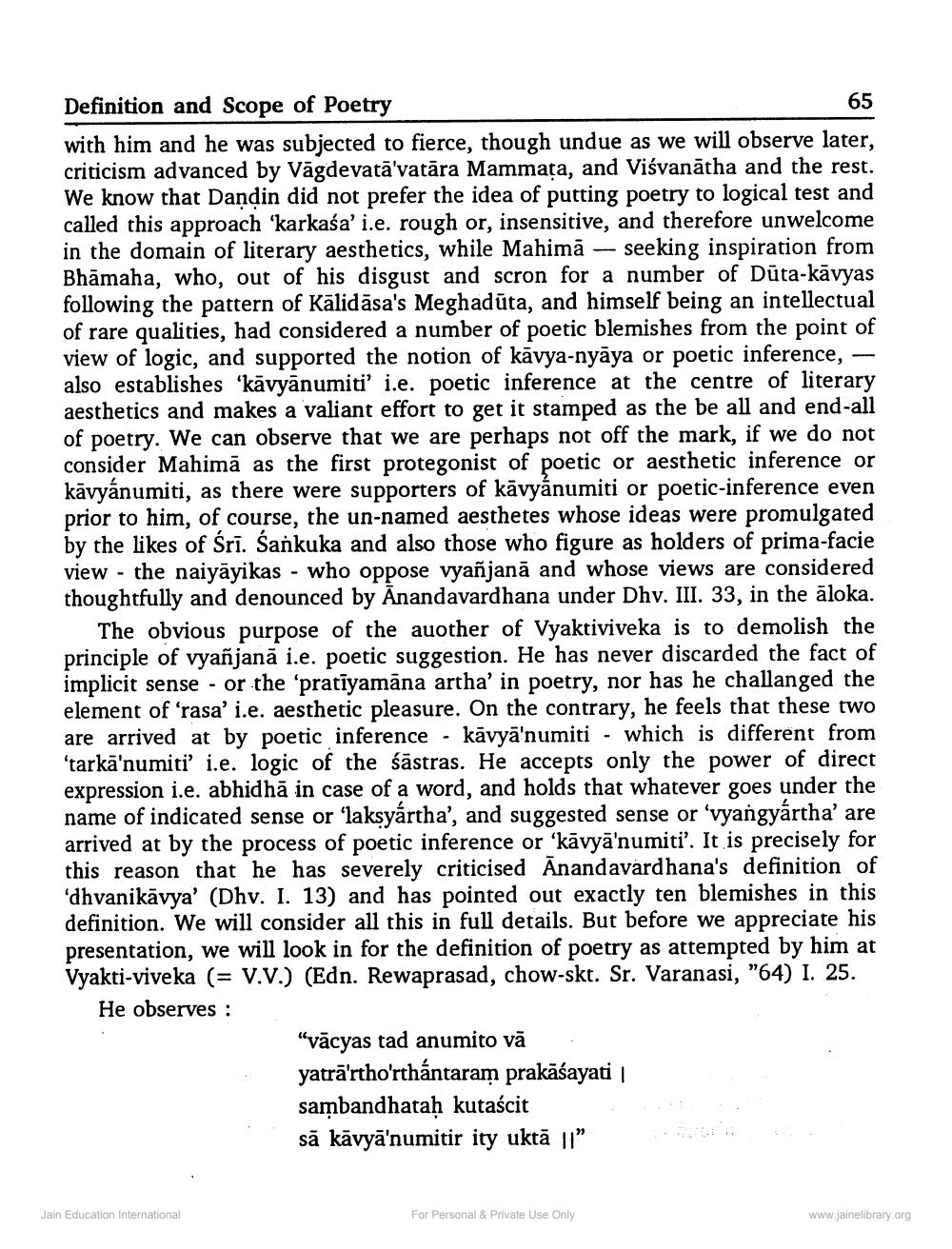________________
Definition and Scope of Poetry
65
-
with him and he was subjected to fierce, though undue as we will observe later, criticism advanced by Vägdevatā'vatāra Mammața, and Viśvanatha and the rest. We know that Dandin did not prefer the idea of putting poetry to logical test and called this approach 'karkasa' i.e. rough or, insensitive, and therefore unwelcome in the domain of literary aesthetics, while Mahimā seeking inspiration from Bhamaha, who, out of his disgust and scron for a number of Duta-kāvyas following the pattern of Kālidāsa's Meghadūta, and himself being an intellectual of rare qualities, had considered a number of poetic blemishes from the point of view of logic, and supported the notion of kavya-nyāya or poetic inference, also establishes 'kāvyānumiti' i.e. poetic inference at the centre of literary aesthetics and makes a valiant effort to get it stamped as the be all and end-all of poetry. We can observe that we are perhaps not off the mark, if we do not consider Mahima as the first protegonist of poetic or aesthetic inference or kävyánumiti, as there were supporters of kävyánumiti or poetic-inference even prior to him, of course, the un-named aesthetes whose ideas were promulgated by the likes of Śrī. Śankuka and also those who figure as holders of prima-facie view the naiyāyikas - who oppose vyañjanā and whose views are considered thoughtfully and denounced by Anandavardhana under Dhv. III. 33, in the aloka.
The obvious purpose of the auother of Vyaktiviveka is to demolish the principle of vyañjana i.e. poetic suggestion. He has never discarded the fact of implicit sense or the 'pratīyamāna artha' in poetry, nor has he challanged the element of 'rasa' i.e. aesthetic pleasure. On the contrary, he feels that these two are arrived at by poetic inference kāvyā'numiti which is different from 'tarka'numiti' i.e. logic of the śāstras. He accepts only the power of direct expression i.e. abhidha in case of a word, and holds that whatever goes under the name of indicated sense or 'laksyártha', and suggested sense or 'vyangyártha' are arrived at by the process of poetic inference or 'kavya'numiti'. It is precisely for this reason that he has severely criticised Anandavardhana's definition of 'dhvanikavya' (Dhv. I. 13) and has pointed out exactly ten blemishes in this definition. We will consider all this in full details. But before we appreciate his presentation, we will look in for the definition of poetry as attempted by him at Vyakti-viveka (= V.V.) (Edn. Rewaprasad, chow-skt. Sr. Varanasi, "64) I. 25. He observes:
Jain Education International
-
-
"vācyas tad anumito vā yatra'rtho'rthántaram prakāśayati | sambandhataḥ kutaścit
sā kāvyā'numitir ity uktā ||"
For Personal & Private Use Only
www.jainelibrary.org




